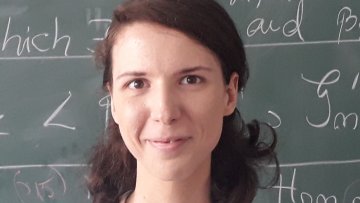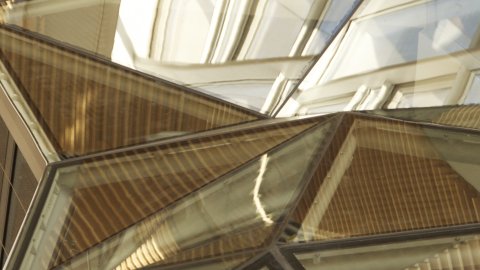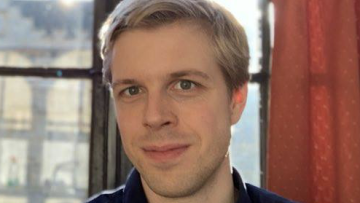Knot theory studies embeddings of the circle into the three dimensional space and the first knot invariant was the Alexander polynomial. The world of quantum invariants started with the milestone discovery of the Jones polynomial and was expanded by Reshetikhin and Turaev’s algebraic construction which starts from a quantum group and leads to link invariants.
Wed, 18 Aug 2021
11:00 -
12:00
Virtual
Learnable intra-layer feedback response in Spiking Neural Networks
Anton-David Almasan
(Thales Group)
Further Information
[[{"fid":"63050","view_mode":"default","fields":{"format":"default"},"link_text":"Research_proposal___Learnable_feedback_response.pdf","type":"media","field_deltas":{"1":{"format":"default"}},"attributes":{"class":"media-element file-default","data-delta":"1"}}]]
Measurement cost of metric-aware variational quantum algorithms
van Straaten, B
Koczor, B
PRX Quantum
volume 2
issue 3
(10 Aug 2021)
Oxford Mathematician Lukas Brantner explains how generalised Lie algebras lead to new insights in Galois theory, deformation theory, and the theory of configuration spaces. Lukas has just been awarded a Royal Society University Research Fellowship.
Optimal closed-loop deep brain stimulation using multiple independently controlled contacts
Weerasinghe, G
Duchet, B
Bick, C
Bogacz, R
PLoS Computational Biology
volume 17
issue 8
(06 Aug 2021)
“Hey, that's not an ODE”: Faster ODE Adjoints via Seminorms
Kidger, P
Chen, R
Lyons, T
Proceedings of Machine Learning Research
volume 139
5443-5452
(01 Jan 2021)
Neural SDEs as Infinite-Dimensional GANs
Kidger, P
Foster, J
Li, X
Oberhauser, H
Lyons, T
Proceedings of Machine Learning Research
volume 139
5453-5463
(01 Jan 2021)




